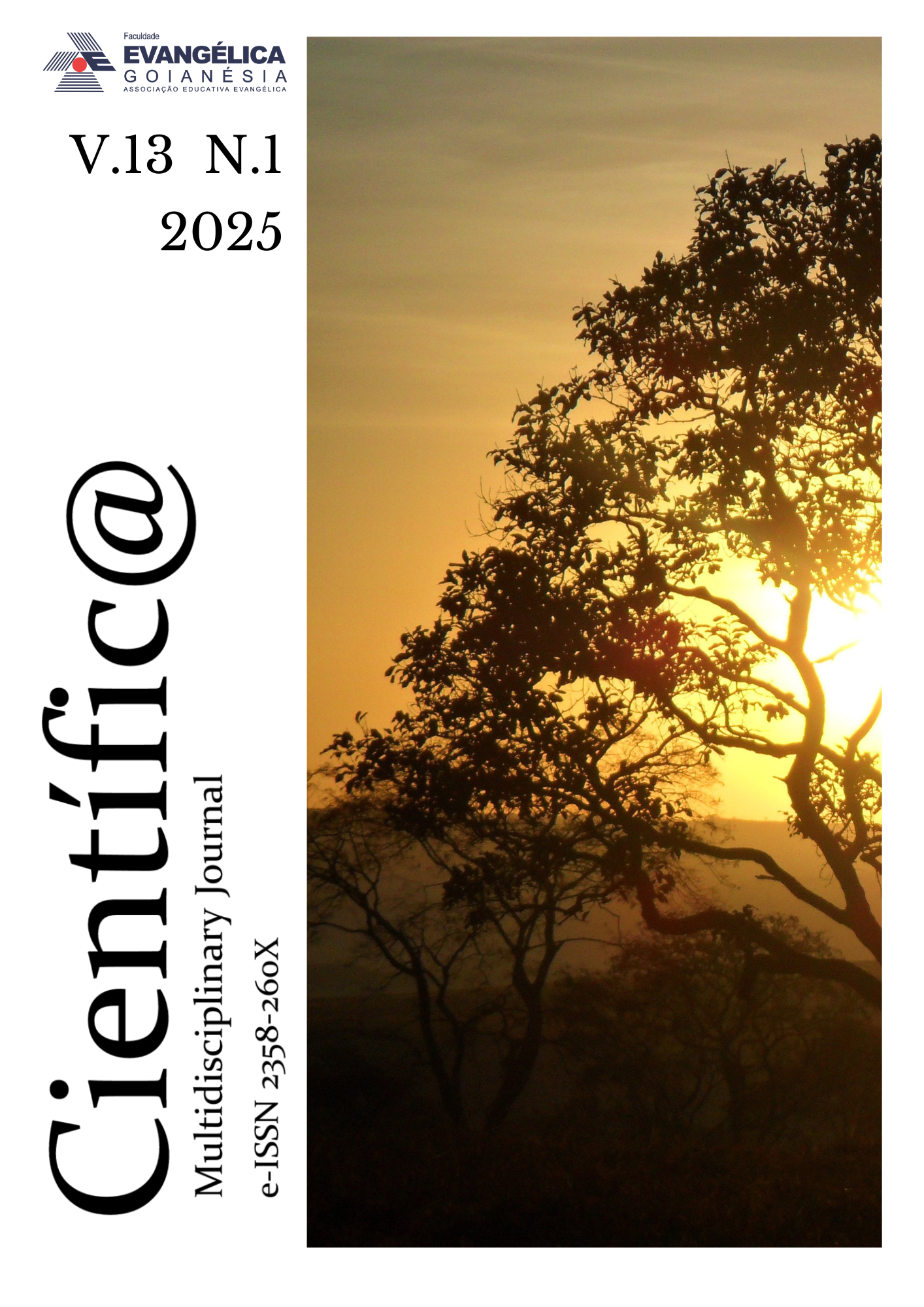PHYSICOCHEMICAL AND MICROBIOLOGICAL EVALUATION OF CAJÃ JUICE WITH DIFFERENT VEGETABLE EXTRACTS
DOI:
https://doi.org/10.37951/2358-260X.2025v13i1.7254Abstract
Abstract: This work aimed to evaluate the physicochemical properties (Soluble solids (ºBrix), pH, Humidity, Dry matter and Ash) and microbiological (coliforms at 35 ºC and 45 ºC) of cajá vitamin with different types of plant extracts. All activities were developed at the Instituto Federal Goiano Ceres and all material was purchased on the local market. A completely randomized design was applied in four treatments with three replications for physical-chemical analysis. The treatments consisted of a control called VLB (Vitamin with bovine milk), VES (Vitamin with Soy Extract), VEA (Vitamin with Almond Extract) and VEC (Vitamin with Coconut Extract). The analyzes of pH, ash, total soluble solids, moisture and dry matter were carried out according to Adolfo Lutz (2008) and the analyzes of coliforms at 35 ºC and 45 ºC using the multiple tube technique (NMP/g). The results were submitted to ANOVA and the differences between the means were compared using the Tukey test at 5% significance using the software R version 3.4.3. It was observed that for the SST results, the VLB and VES treatments did not differ statistically from each other and presented high values in relation to the general average. The VEA and VEC treatments presented values below the general average and did not differ from each other. For pH analysis, the VES treatment was less acidic when compared to the control, while the VEA and VEC treatments were more acidic than the control. For moisture analysis, all treatments differed statistically. The VEA treatment presented the highest moisture level while the control presented the lowest. The highest ash level was observed for the VES treatment compared to the others. VEA and VEC presented the lowest value among all ash treatments and did not differ statistically from each other. The treatments showed contamination for coliforms at 35 ºC for the VLB, VES and VEA samples and negative for the VEC sample. All samples met the microbiological standards of Brazilian legislation regarding the presence of coliforms at 45 ºC, as all samples were negative. We conclude that cajá vitamin with plant extract is an alternative to replace cow's milk with the advantage of not containing lactose and presenting positive nutritional attributes. All experimental treatments presented physicochemical and microbiological characteristics that meet the standards of Brazilian legislation.
Keywords: Spondias mombin; vegetable “milk”; healthy eating; Brazilian cerrado.
Downloads
Published
How to Cite
Issue
Section
License
Esta revista oferece acesso livre imediato ao seu conteúdo, seguindo o princípio de que disponibilizar gratuitamente o conhecimento científico ao público proporciona maior democratização mundial do conhecimento.
A partir da publicação realizada na revista os autores possuem copyright e direitos de publicação de seus artigos sem restrições.
A Revista Científic@ - Multidisciplinary Journal segue os preceitos legais da licença Creative Commons - Atribuição-NãoComercial 4.0 Internacional. 

